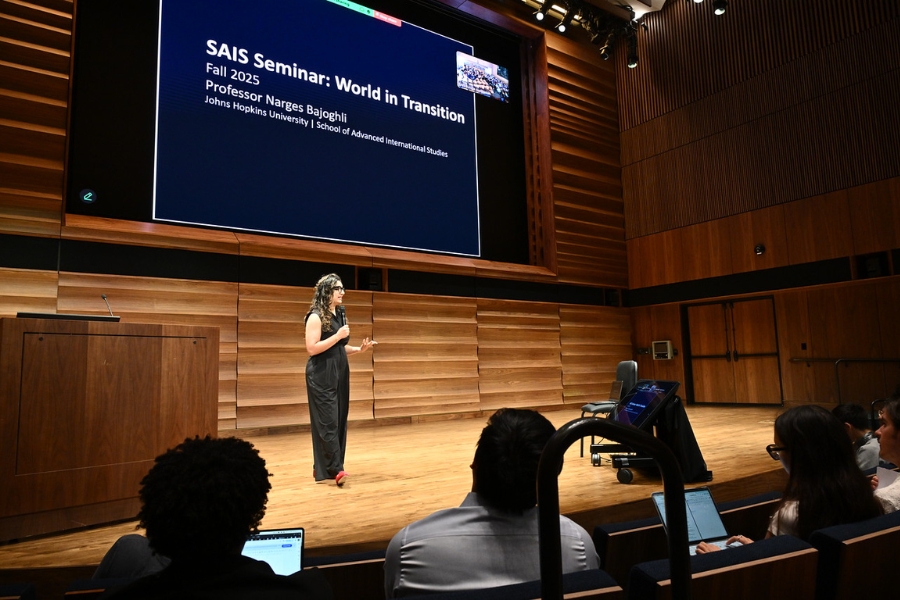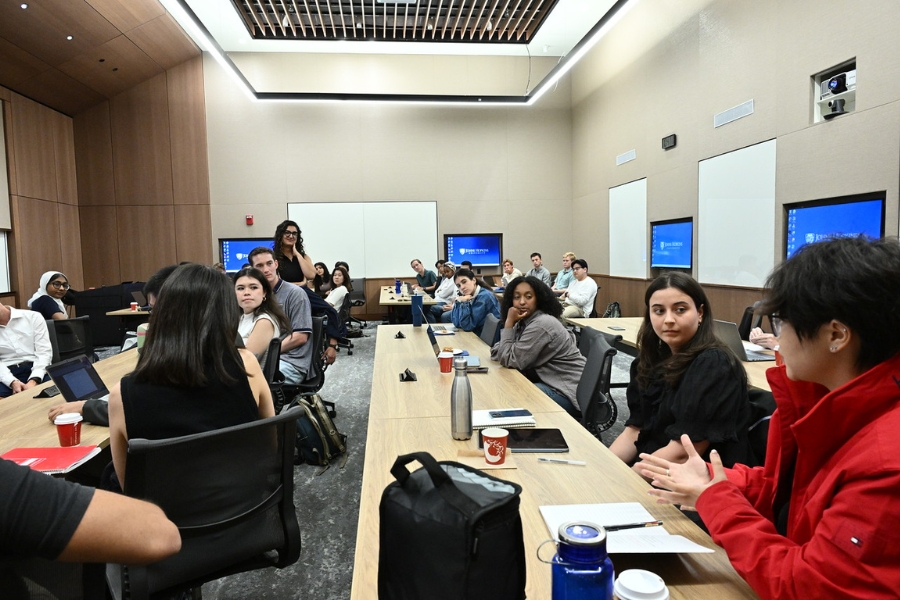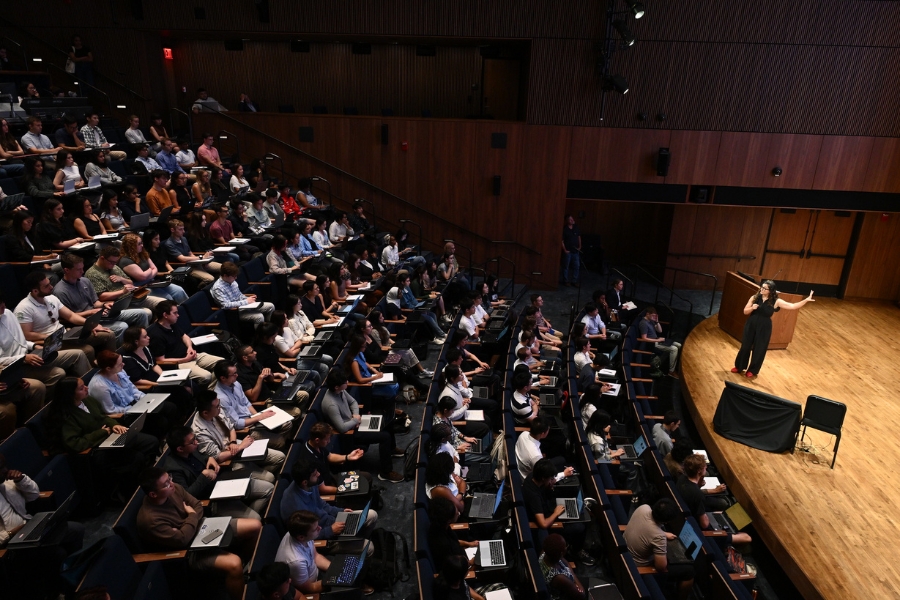Launch of New SAIS Seminar
August 25, 2025
On the first day of the Fall 2025 semester, the Johns Hopkins School of Advanced International Studies (SAIS) launched a bold new initiative with the debut of the SAIS Seminar, a required cornerstone for all Master of Arts in International Relations (MAIR) students.
Led by Professor Narges Bajoghli, the inaugural course—World in Transition—places first-year students at the center of the debates, frameworks, and questions that shape international affairs. The seminar’s design reflects the core SAIS ethos: academic rigor, policy relevance, and global impact.
First-year MAIR students at SAIS Europe joined the opening session virtually from Bologna, while Hopkins-Nanjing Center students will be integrated into the seminar next year. By Fall 2026, all first-year MAIR students across the school’s three campuses on three continents will take part, underscoring SAIS’ distinctive global reach. By engaging in a shared intellectual inquiry during their first semester, MAIR students will have the opportunity to build strong ties to peers with diverse backgrounds and interests, deepening the sense of community that has always been a hallmark of the SAIS experience.
Structured around weekly lectures, small-group discussions, and collaborative projects, the seminar equips students with the intellectual foundation to engage today’s most pressing challenges. “This seminar represents a transformative approach to the learning experience at SAIS. We are committed to fostering critical thinking and practical engagement, ensuring our students emerge as informed leaders ready to tackle the complexities of international relations,” said SAIS Dean James Steinberg, whose vision guided the seminar’s creation.
The course begins with theoretical grounding and then moves through interdisciplinary guest lectures by leading faculty in economics, political science, history, law, technology studies, and more. Topics range from globalization and great power competition to social movements, global governance, artificial intelligence, climate change, entrepreneurship, and U.S. foreign policy. It concludes with a synthesis led by Professor Bajoghli, challenging students to imagine “future world scenarios” that connect scholarship to practice.
“This seminar captures the very spirit of SAIS, giving our students the tools to think deeply, argue persuasively, and lead effectively in a world in constant motion,” said Vice Dean for Education and Academic Affairs Chiedo Nwankwor. “By exposing them to diverse perspectives and real-time policy challenges, we are preparing them not only to understand change but to help shape it.”
Dean Steinberg, who previously served as deputy national security advisor under President Bill Clinton and deputy secretary of state under President Barack Obama, will lead the Week 10 session, examining how U.S. foreign policy has adapted to global shifts from the 1990s to today. He is one of many world-class SAIS faculty who will bring their expertise directly into the seminar classroom.
As the semester unfolds, World in Transition is more than a class. It is an intellectual anchor that embodies what makes a SAIS education exceptional—where scholarship meets practice, and students are prepared not just to understand the world, but to help shape it.

